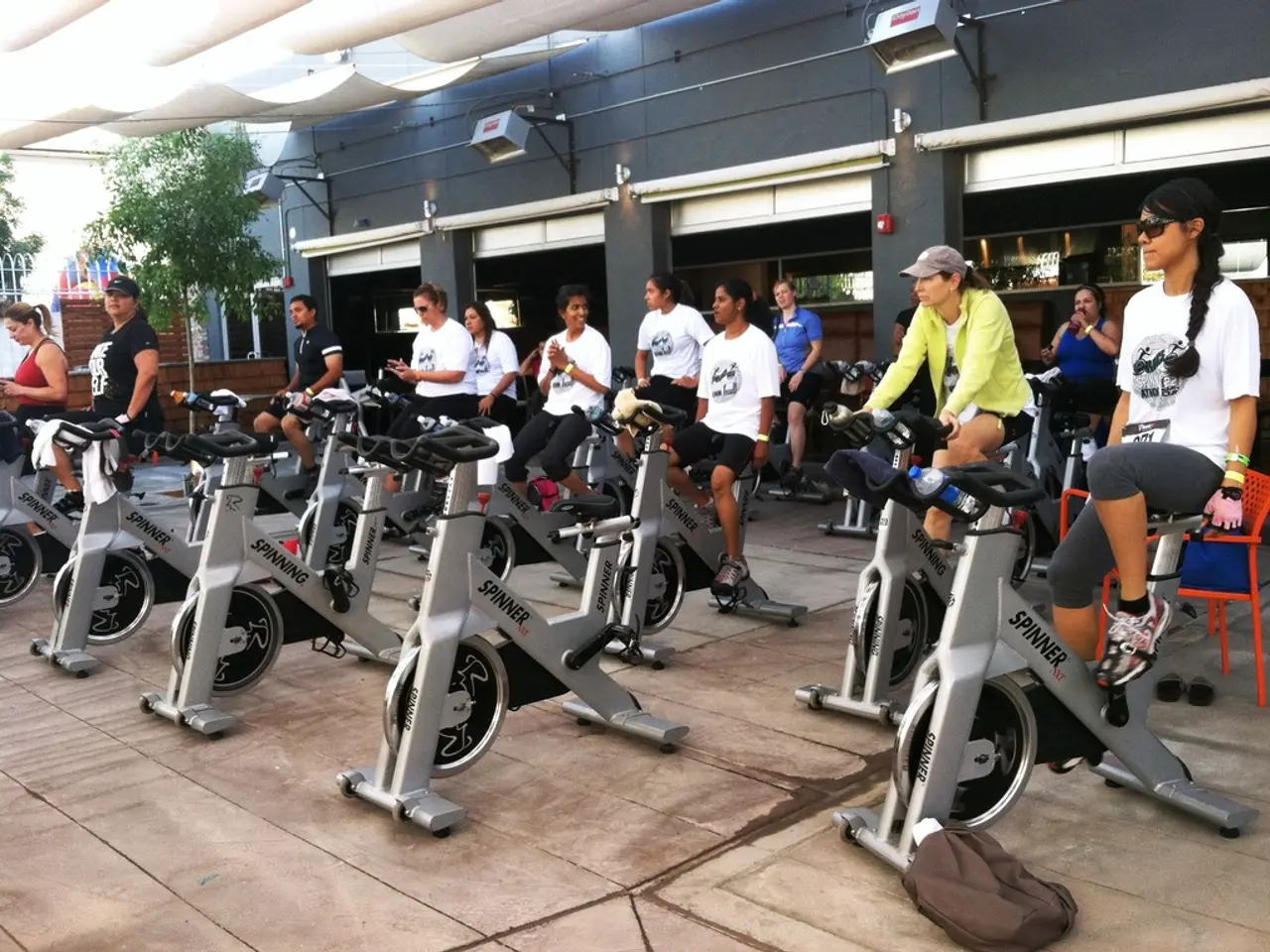Optimized Nutritional Aid for Post-Exercise Restoration
When it comes to post-workout recovery, getting the right balance of nutrients is crucial for optimal muscle repair, glycogen replenishment, and overall performance. Here are some key food and supplement options to consider.
Chocolate milk, grilled chicken breast with sweet potatoes, and Greek yogurt with fruit are all excellent single food choices for post-workout recovery. These options provide a balance of protein, carbohydrates, and electrolytes, essential for muscle repair and glycogen replenishment.
Protein, in particular, plays a vital role in muscle recovery. Fast-absorbing protein, such as whey protein isolate or plant-based alternatives, is recommended for post-workout consumption, with a target of 20-40 grams.
Electrolytes are also essential for post-workout recovery, as they help restore minerals lost through sweat and prevent muscle cramping. Key electrolytes include sodium, potassium, and magnesium.
Creatine is another supplement that can support ATP replenishment, strength, and recovery. It can be taken daily at any time, with post-workout being an ideal option for some. A typical dosage is 5 grams daily.
Branched-chain amino acids (BCAAs) are also beneficial for muscle repair and reducing soreness. A daily dosage of 3-20 grams, divided around workouts, is recommended.
Anti-inflammatory compounds, such as curcumin or tart cherry extract, can help reduce inflammation and muscle soreness. Regularly incorporating these into your diet can aid in recovery.
A well-rounded post-workout supplement plan involves a combination of high-quality protein, creatine, amino acids (especially BCAAs), electrolytes, and select vitamins/minerals to optimize muscle repair, replenish glycogen, promote rehydration, and reduce inflammation.
Preference should be given to natural, well-absorbed forms with a focus on digestive health and sustainable metabolism. However, it's important to note that individual product preferences and sensitivities may vary, and it's essential to choose supplements that best suit your needs.
In addition to these supplements, it's also important to consume protein within 30-60 minutes after exercise for optimal muscle repair. BCAA intake can be divided before, during, or after workouts.
Other food options for post-workout recovery include salmon with quinoa, which is rich in protein and anti-inflammatory omega-3 fats, and Greek yogurt with berries, which provides high-quality protein, carbohydrates, and antioxidants for reducing inflammation and replenishing energy.
In summary, a well-rounded post-workout recovery plan involves a combination of high-quality protein, creatine, amino acids (especially BCAAs), electrolytes, and select vitamins/minerals to optimize muscle repair, replenish glycogen, promote rehydration, and reduce inflammation. Preference should be given to natural, well-absorbed forms with a focus on digestive health and sustainable metabolism.
Health-and-wellness products like creatine and branched-chain amino acids (BCAAs) can aid in post-workout recovery by supporting ATP replenishment, strength, and muscle repair, as well as reducing inflammation and muscle soreness. Science has shown that protein, particularly fast-absorbing supplements like whey protein isolate or plant-based alternatives, play a vital role in post-workout muscle recovery. Furthermore, supplements containing electrolytes, such as sodium, potassium, and magnesium, help restore minerals lost through sweat and prevent muscle cramping, contributing to an overall fitness-and-exercise routine that emphasizes nutrition, weight-management, and health-and-wellness.




